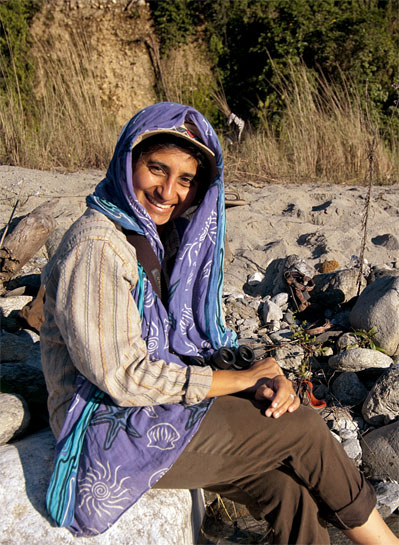Divya Mudappa - Restoring The Fabric
Author:
First published in Sanctuary Asia,
Vol. 37
No. 1,
January 2017
I was most intrigued by rainforests. Over the years, I went on to study animals, large and small - from rodents and small carnivores to hornbills and elephants. The more I learned about animals, the more I understood the role of the multitude of rainforest plant species, particularly trees, which supported them. In return, animals such as hornbills and civets help maintain the dynamics of their chosen habitats, thus ensuring the survival of entire ecosystems.
At first, working in two of the most magnificent Protected Areas of Tamil Nadu - the Kalakad-Mundanthurai Tiger Reserve and Indira Gandhi Wildlife Sanctuary and National Park (now the Anamalai Tiger Reserve), it seemed that only large swathes of forests are required for wildlife conservation. But one learns as one continues to work - that even small forest fragments can support a surprisingly high diversity of species, as can the plantations surrounding these remnant ecological oases.
Conserving the pieces that remain poses its own challenges. Staving off pressures on the remnants, as on every piece of land, is an everyday battle and nightmare. As we initiated a long-term conservation programme in the Anamalai Hills, we decided to work with the stakeholders - in this case, large, land-owning plantation companies - to recognise and protect fragmented forests and, where necessary, restore and manage them to enhance diversity and their functioning.
For over a decade now, this has been the focus of my research and conservation efforts: restoring rainforests and fostering ecologically-sensitive plantation land use. In India, we are fortunate that a lot of wildlife persists outside Protected Areas and that people are tolerant towards these species. Working together with various kinds and groups of people is essential to retain the cultural fabric of coexistence, and ensure that it is not worn away under the pressures of economic growth, development, and intolerance.
Dr. Divya Mudappa is a scientist with the Nature Conservation Foundation. Her primary research interests lie in tropical ecology, particularly rainforests, and applied ecological subjects such as restoration ecology and conservation biology.
Author: Divya Mudappa, Sanctuary Asia, Vol. XXXV No. 6, June 2015.


